Drawn to teaching from an early age, Dr. Pangersenla Walling’s fascination with language began at home and she discovered a brochure for the Central Institute of English and Foreign Languages in Hyderabad.
Share
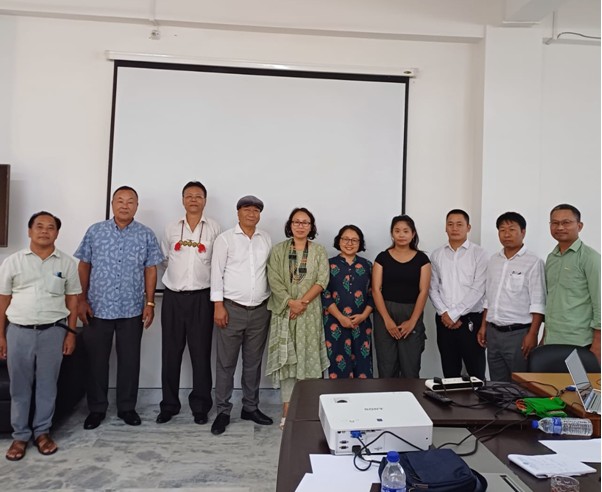
DIMAPUR — Drawn to teaching from an early age, Dr. Pangersenla Walling’s fascination with language began at home, where her father taught her grammar and sparked a curiosity about how language works.
In the late 1990s, while helping her uncle arrange his library, she discovered a brochure for the Central Institute of English and Foreign Languages in Hyderabad. That was when she learned about linguistics as a field of study—soon after, her uncle handed her a book titled “Introduction to Linguistics”, and there was no turning back.
Having done her schooling between Shillong and Mokokchung before returning to Shillong after her 10th, Dr. Walling went on to complete her undergraduate studies in Political Science and a Master’s in Linguistics from North-Eastern Hill University.
She later pursued an M.Phil. and PhD in Linguistics at Delhi University, completing both within the five years of her University Grants Commission – Junior Research Fellowship and Senior Research Fellowship. Her career has since included work on the North East India Language Development Project under the Central Institute of Indian Languages, as well as a teaching stint at Deccan College Postgraduate and Research Institute in Pune.
Since joining Nagaland University in 2012, where she now serves as Head of the Department of Linguistics, Dr. Walling has been dedicated to advancing research and education in the field.
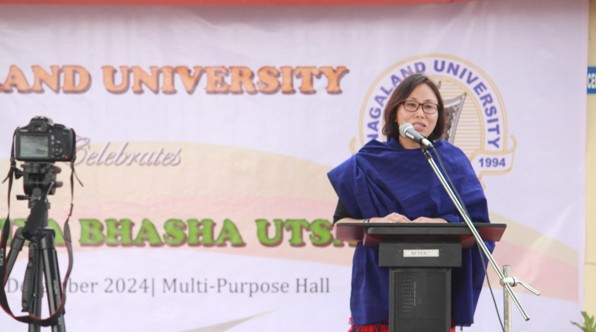
In this interview with Eastern Mirror, Dr. Walling unpacks the scope of linguistics for young learners, explains its major branches, addresses common misconceptions, and offers practical guidance for students interested in the field.
Linguistics is the adventure of discovering how humans create, understand, and share language. It’s about understanding the rules and patterns that all languages share.Nagaland travel guideProducts of Nagaland
It is not about speaking different languages. It is about discovering how language works. You will learn why words sound the way they do, how we join them to make sentences and how small changes can completely change their meaning. You will also notice why your best friend speaks differently from your grandparents. You will see how emojis and slang are also part of language and discover how AI assistants like Siri or Alexa understand us.
What are the major branches or subfields of linguistics that students should know about?
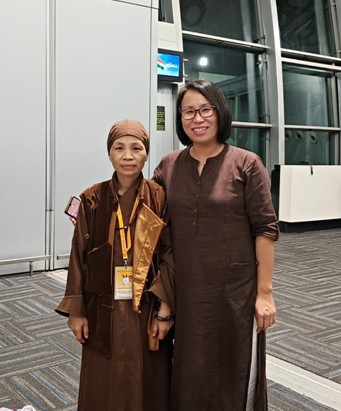
Linguistics is the scientific study of language. It has several main branches. Phonetics deals with speech sounds. It looks at how they are produced (articulatory phonetics), their physical properties (acoustic phonetics), and how they are heard and understood (auditory phonetics). Phonology studies how sounds work together in a language.
Morphology examines how words are built from smaller units called morphemes. Syntax focuses on the arrangement of words to form sentences. Semantics explores the meanings of words and sentences. Pragmatics studies how meaning changes with context, tone, or situation. Sociolinguistics looks at how language varies across societies, cultures, and social groups. Psycholinguistics links psychology and linguistics to study how the brain learns, processes, and produces language. Historical linguistics investigates how languages change over time and where they come from.
Applied fields include language teaching, translation, speech therapy, and forensic linguistics. Other specialised areas are neurolinguistics (how the brain processes language), computational linguistics (language and technology), anthropological linguistics (language and culture), discourse analysis (how sentences connect in communication), stylistics (language style in writing and speech), and ecolinguistics (the relationship between language and the environment).
What misconceptions do young learners often have about linguistics?
Many young learners think linguistics is just learning many languages. Some believe it is about memorising grammar rules. In reality, it is the scientific study of how language works. Many imagine linguists as “grammar police” who tell people what is correct. In fact, linguists describe how people actually speak and write. Some think it is only about spoken words. They forget that sign languages, writing systems, and other forms of communication are also part of it.
Others assume it has nothing to do with science or maths. However, linguistics often uses patterns, logic, and numbers to study sounds, structures, and meanings. Another common belief is that only “proper” languages are studied. In truth, linguists explore all varieties, from formal speech to slang and dialects.
If a student is interested in linguistics, what subjects should they focus on in school?
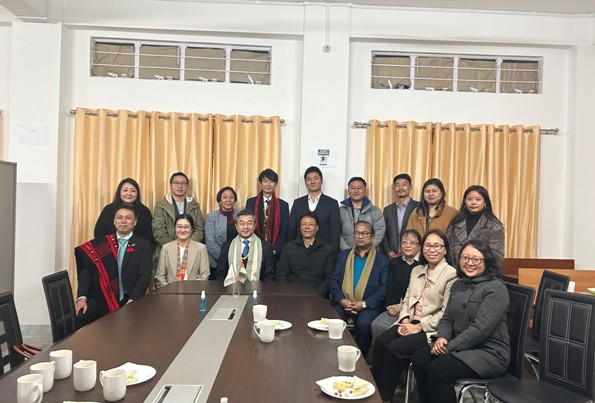
If a student is interested in linguistics, they should pay close attention to language subjects in school. This includes English, regional languages, and foreign languages. Linguistics is multidisciplinary. It connects to many other fields. A good linguist studies language from many perspectives.
To prepare for studying linguistics, it is useful to build skills across many subjects. Language and Literature help you understand grammar, vocabulary, and style. Mathematics and Logic train you to solve problems, find patterns, and carry out formal analysis. Science, especially Biology and Physics, explains how speech is produced, how we hear, and how sound waves work.
Social Studies provide insight into culture, history, and how language changes in society. Psychology reveals how the brain learns and uses language. Computer Science opens the door to computational linguistics, artificial intelligence, and language technology. In short, focus on your language papers, but also learn from all subjects, and then apply those different perspectives to the study of linguistics.
What undergraduate courses or degrees typically lead into a deeper study of linguistics?
If you are curious about linguistics, there are many ways to start at the undergraduate level. The field connects to a wide range of subjects. Some students take a direct path with a BA in Linguistics. This focuses on how sounds, words, and sentences work. Many begin with language-based degrees such as English, foreign languages, or comparative literature. These study how languages are structured and how they change.
Degrees in anthropology, sociology, psychology, or communication studies also give a strong base for exploring how language relates to culture, society, and the mind. Science and technology students might study cognitive science, computer science, or speech and hearing sciences. These can lead to fields such as computational linguistics or neurolinguistics. Even without a direct linguistics degree, you can prepare by choosing electives in language, logic, psychology, or technology.
How important is mother tongue in building a foundation for linguistics studies?
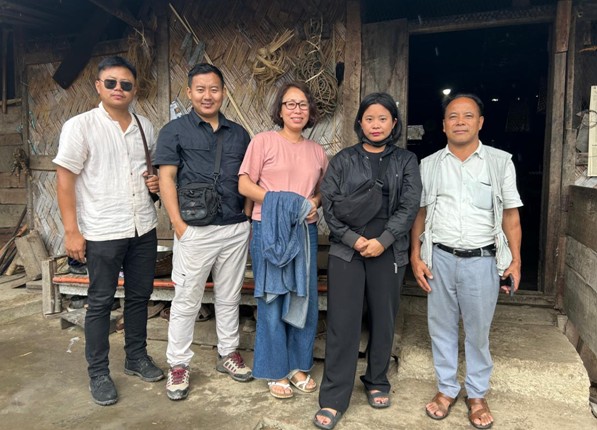
Mother tongue is like the first classroom of your language learning. It is where you start to understand how words fit together, how sounds are made, and how meaning is shared. So, when you study linguistics, that familiar language becomes your reference point. It will help you compare and understand other languages. It is like having a map in your pocket. Even when you travel to explore new languages, your mother tongue keeps you grounded. It is the anchor that helps you see how all human languages work.
What career options are available to someone with a degree in linguistics?
A degree in linguistics can lead to many careers because language is part of almost every area of life. Some people work directly as language teachers, translators, interpreters, speech therapists and assistant professors in linguistics at colleges and universities. Many schools prefer teachers with a degree in linguistics, as they are trained in phonetics, language teaching, grammar, and even areas like speech disorders and therapy. They help students to learn, understand, neutralise accent or recover language skills. With papers in language teaching and English language teaching, they can also handle subjects like Functional English.
Others go into research in various aspects of linguistics. Lately, there has been growing interest in documenting endangered languages. Major international organisations are now paying close attention to this work. There are scholarships that support students in their research. Additionally, some universities abroad not only accept research scholars but also seek project assistants from this region.
In technology, linguists help develop speech recognition systems, language-learning apps, and AI that understands human communication. Linguists also work in publishing, editing, and dictionary-making. Some enter forensic linguistics, using language clues to solve legal cases. Those interested in culture and communication may work in anthropology, sociolinguistics, media, or marketing. Linguistics trains you to spot patterns, solve problems, and communicate clearly. These skills can be applied in many fields, from creating content to shaping new technologies.
How do language preservation or regional language studies translate into career opportunities?
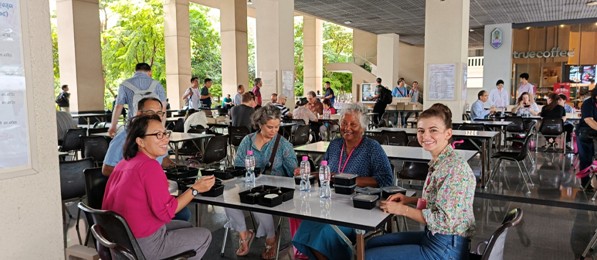
Studying language preservation or regional languages can lead to rewarding careers connected to culture. You might document endangered or lesser-known languages by recording stories, songs, and conversations to keep them from being lost. Some create teaching materials or run bilingual programmes in schools to help children stay connected to their heritage. Others work in museums, archives, or cultural centres, curating exhibits and collecting oral histories.
Field research is another option, where you collaborate with communities to support everyday language use. Governments, NGOs, and cultural groups often need people to help shape language policy or plan heritage projects. In technology, regional language skills are useful for translating and adapting apps, websites, and AI tools for local users. This work preserves not just words, but traditions, identities, and whole ways of seeing the world.
If you could give one piece of advice to every student considering linguistics, what would it be?
Stay curious about all the ways people communicate. Listen to how friends switch languages in the middle of a sentence. Notice the slang you see online. Pay attention to the rhythm of song lyrics. Watch how toddlers play with words. Language is everywhere, not just in textbooks. Every conversation, sign, and story gives clues about how we connect as humans. The more you notice, the more you’ll understand that linguistics is not just about grammar and rules. It’s about people, cultures, and the small details that make communication fascinating.
RAPID INSIGHTS
If you could invent a new language, what would you name it?
Blipple!
If you had to teach linguistics in 5 minutes to a crowd of kids, what’s the headline you’d use?
“Linguistics: Cracking the Secret Codes of How We Talk!”
Which famous thinker or writer would you most like to have a conversation with?
There are many! In no particular order it will be Christoph von Fürer-Haimendorf, Noam Chomsky, John Searle, George Orwell, David Crystal and many more